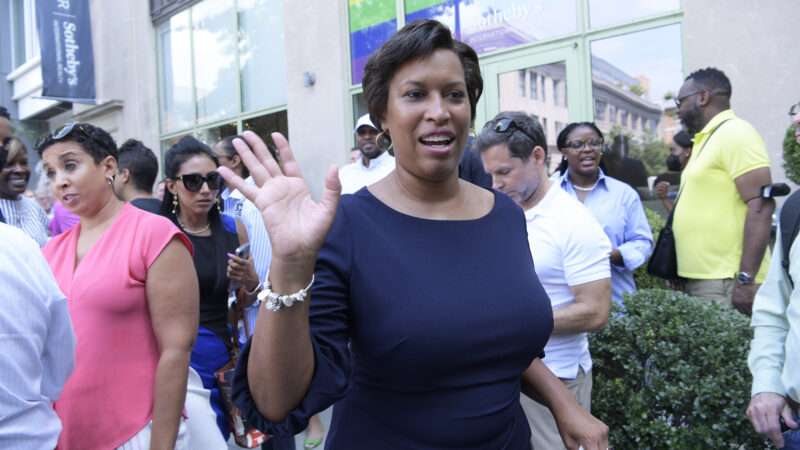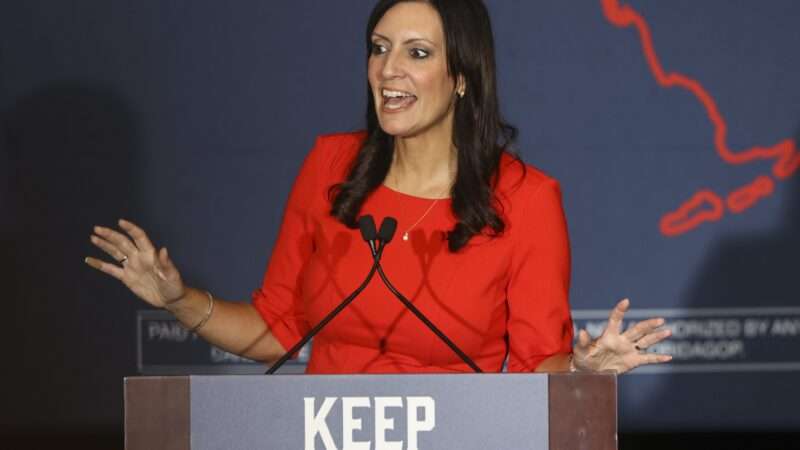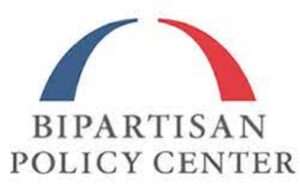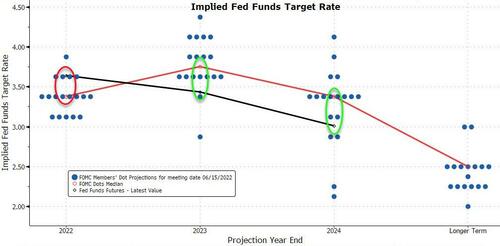This new article of mine will be coming out next year in the Journal of Law and Religion, and I thought I’d serialize it here; there’s still plenty of time for editing, so I’d love to hear people’s feedback. Here’s Part III (Part II is more doctrinal, so I’m skipping it for now, but you can read it in the PDF, if you’d like).
[* * *]
Weighing a person’s religious community membership in deciding whether to let the person remain pseudonymous might thus not be unduly burdensome or unfair to litigation adversaries [in violation of the Establishment Clause]. But might it be unfair to the religious community?
Consider, for instance, two of the cases described in Part I.A, plus a third one which strikes me as a plausible hypothetical:
-
- A woman whose family and friends are Trinidadian Muslims seeks pseudonymity in suing over an alleged rape.
- A woman whose family and friends are Southern Baptists seeks pseudonymity in an employment lawsuit stemming from her work as a stripper.
- A man whose family and friends are Orthodox Jews seeks pseudonymity in a domestic violence case stemming from a consensual adulterous relationship.[1]
To begin with, a judge would have to determine not just whether the plaintiffs would be stigmatized within that community, but whether they would be unusually stigmatized compared to ordinary litigants. The risk of some such stigma, after all, isn’t by itself generally enough to justify pseudonymity in litigation or as to public licenses or records. [2] And even the particular attributes in these three examples—having been sexually assaulted, being a stripper, or being an adulterer—are often stigmatized even outside particular religious communities.
Many within the religious communities might think the stigma is not materially greater in those communities than elsewhere, and might resent the implication that it is. Our religion calls us on to be loving and forgiving, they might say. Certainly it doesn’t condemn women who were attacked. It might condemn stripping and adultery, but it acknowledges that everyone is a sinner, and that all we can do is repent and strive to change, and to encourage our friends and families to do the same.
True, there might be some unduly judgmental people who won’t take such a kind view; but all communities have unpleasant folks such as that. Why are you making us out to be particularly harsh? In the course of claiming that we unfairly stigmatize certain people—and do so more than society generally does—might you be unfairly stigmatizing us?
Moreover, the magnitude of religious communities’ condemnation of these litigants is hard to measure; decisions are likely to be guesswork, based mostly on the judge’s perception of the group’s reputation. There may well be an affidavit from the litigant,[3] and perhaps from some others, making claims about such condemnation; but such self-serving claims—or claims that support a friend or family member—aren’t likely to be terribly reliable. There may be media accounts,[4] but those may well be one-sided, or based on the author’s own views. Community members might thus plausibly believe that they are being incorrectly tarred as especially judgmental, retrogressive, and intolerant based simply on outsiders’ stereotypes (e.g., of Muslims or of conservative Christians).[5]
To be sure, in traditional religious exemption cases, courts are supposed to accept claimants’ assertions that the law substantially burdens their religious practices, at least so long as the courts conclude the claimants are sincere.[6] But that makes sense because the burden relevant to those cases turns on the claimant’s own subjective beliefs. Here, the claimants are making assertions about the likely actions of coreligionists, assertions that, if believed, reflect badly on the character of those coreligionists.
One possible solution, of course, would be to pseudonymize the religious group, by saying that the defendant belongs to a group that condemns certain behavior without naming the group. But that would deny the public (and future litigants and their lawyers) important information about the basis for a judge’s decision. How, after all, can the public effectively “oversee and monitor the workings of the Judicial Branch,”[7] if it isn’t told the true basis for a judge’s decision?[8]
Another solution might be for the judges to take pains to note that they are just speaking of the views of some religious community members, and not talking about the religious group as a whole. But still, any decision allowing confidentiality for (say) a conservative Muslim alleged rape victim when such confidentiality would be denied for someone from a different religious community would necessarily imply that there are at least many such conservative Muslims—a higher share than among the public as a whole—who would view being a rape victim as shameful.
This sort of decisionmaking thus risks the sort of government disapproval of religion that some of the Court’s Establishment Clause have condemned. Consider, for instance, a litigant’s claim that, say, she “comes from a strict Muslim household where under their cultural beliefs and traditions such a sexual assault would have the tendency to bring shame and humiliation upon her family,”[9] and that she is therefore subject to “social stigma”[10] beyond that faced by a typical litigant. A judicial determination endorsing this claim may well be seen as critical of conservative Islam, even if the judge doesn’t expressly condemn the group for such views. After all, wouldn’t many of us disapprove of a group that blames the victim this way?
To be sure, the Court’s recent American Legion decision repudiated the endorsement test as a formal Establishment Clause doctrine,[11] and the prohibition on disapproval of religion has generally been closely linked to the prohibition on endorsement.[12] Still, even American Legion condemned government speech that “‘deliberately disrespect[s]’ members of minority faiths.”[13]
Of course, one might argue that an impartial determination of the facts about a religious group is as a matter of law not disrespectful: Find the facts and let the chips fall where they may. But a determination based on little more than an outsider judge’s perception of the group, coupled with a litigant’s own affidavit (or even the affidavits of some of the litigant’s supporters), will often risk stemming from disrespectful stereotypes and not just objective reality.
And in any event, even if such determinations aren’t unconstitutional, they seem to me best avoided, for the reasons given above. Certainly the American law of religious exemptions generally avoids having to decide what Southern Baptist or Muslim or Jewish communities are like, focusing instead on the beliefs of the individual claimant and not generalizations about a group.[14]
The notable exception there is Wisconsin v. Yoder, where the Court’s exemption of Amish objectors from the requirement that parents must send all children to school until age 16 stemmed in part from “evidence … show[ing] that the Amish have an excellent record as law-abiding and generally self-sufficient members of society,” and that “the Amish community has been a highly successful social unit within our society.”[15] But this feature of Yoder has been criticized,[16] and I think rightly so.
[1] Cf. Complaint, Doe v. Sebrow, No. 2:21-cv-20706, § 17 (D.N.J. filed Dec. 23, 2021) (plaintiff seeking pseudonymity in a lawsuit stemming from alleged libels by his ex-lover, and noting that he “practices Orthodox Judaism and is involved in various activities in that social and religious environment,” at ¶ 17).
[2] See Volokh, supra note 1, at pt. III.F. Many plaintiffs and even more defendants risk some degree of stigma if their identities are revealed. Usually, though, that’s not enough to overcome the strong presumption in favor of public litigation. If I’m sued for sexual harassment, fraud, or even malpractice, that would surely expose me to “shame and humiliation,” even if I claim that it’s unmerited because I’m actually innocent. Likewise if I sue for wrongful firing, and my employer’s defense is that I was really fired for sexual harassment, fraud, or malpractice. Nonetheless, I generally can’t litigate such cases pseudonymously. And while plaintiffs alleging sexual assault often will be allowed to litigate pseudonymously, not all courts take that view. See id. at Apps. 2a & 2b.
[3] See, e.g., Declaration of Jane Doe, Doe v. Neverson, No. 1:20-cv-20016-UU, ¶¶ 7–8 (S.D. Fla. Jan. 10, 2020) (ECF. No 7-1 app. A).
[4] See, e.g., Motion for Leave to Proceed Under Pseudonyms, Doe v. Georgetown Synagogue—Kesher Israel Congregation, No. 1:16-cv-01845-ABJ, at 7 (D.D.C. Sept. 15, 2016).
[5] In asylum cases in which an applicant raises the risk of religious persecution, immigration courts and Article III courts may have to consider some religious groups’ mistreatment of other groups. See, e.g., Sihotang v. Sessions, 900 F.3d 46, 51 (1st Cir. 2018) (noting evidence that” “Islamic fundamentalist fervor seems to have intensified, such that evangelical Christians may now be at special risk in Indonesia,” both risk of discrimination by government and of private violence). But that at least involves courts reporting on conditions in foreign countries, usually bolstered by authoritative “State Department country conditions reports,” id. at 52. The cases described in the text involve courts passing judgment on communities within the United States, usually based on affidavits by litigants coupled with conventional perceptions of those communities.
[6] Thomas v. Review Bd., 450 U.S. 707, 715 (1981).
[7] Doe v. Public Citizen, 749 F.3d 246, 263 (4th Cir. 2014).
[8] To be sure, this is a decision about pseudonymity, not about a decision about the bottom-line result in a case. But pseudonymity decisions are indeed significant, because they affect public rights—indeed, in the view of some courts, the public’s First Amendment rights. See Volokh, supra note 1, at pts. I.A–.B.
[9] Doe v. Neverson, 820 F. App’x 984, 988 (11th Cir. 2020) (cleaned up).
[10] Id.
[11] American Legion v. American Humanist Ass’n, 139 S. Ct. 2067 (2019).
[12] See, e.g., Cty. of Allegheny v. ACLU, 492 U.S. 573, 620 (1989).
[13] 139 S. Ct. at 2089.
[14] Thomas v. Review Bd., 450 U.S. 707, 715 (1981).
[15] 406 U.S. 205, 212–13 (1972).
[16] See, e.g., Peter J. Riga, Yoder and Free Exercise, 6 Journal of Law and Education 449, 466 (1977) (“What the Court has done in Yoder comes dangerously close to that examination of beliefs which, in itself, is a violation of free exercise.”); Mark Tushnet, Of Church and State and the Supreme Court: Kurland Revisited, 1989 Supreme Court Review 373, 379 (“It is not unfair to read [Yoder] as saying that the claims of the Amish prevailed because they were a ‘good’ religion.”); Lisa Biedrzycki, “Conformed to This World” : A Challenge to the Continued Justification of the Wisconsin v. Yoder Education Exception in A Changed Old Order Amish Society, 79 Temple Law Review 249, 267–68 (2006) (faulting Wisconsin v. Yoder for relying on “beatific stereotypes” of the Amish); Nicholas J. Nelson, A Textual Approach to Harmonizing Sherbert and Smith on Free Exercise Accommodations, 83 Notre Dame Law Review 801, 811–12 (2008) (“The Yoder Court was even rather explicit about its function as a stamp of government approval or disapproval of specific religious beliefs. . . . The Court even hinted that it would not be so kind to religious views it found less appealing . . . .”); James M. Oleske, Jr., Free Exercise (Dis)honesty, 2019 Wisconsin Law Review 689, 717–18 (2019).
The post Protecting People from Their Own Religious Communities: Judicial Evaluation of a Religious Community's Qualities appeared first on Reason.com.
from Latest https://ift.tt/DPscvuj
via IFTTT






